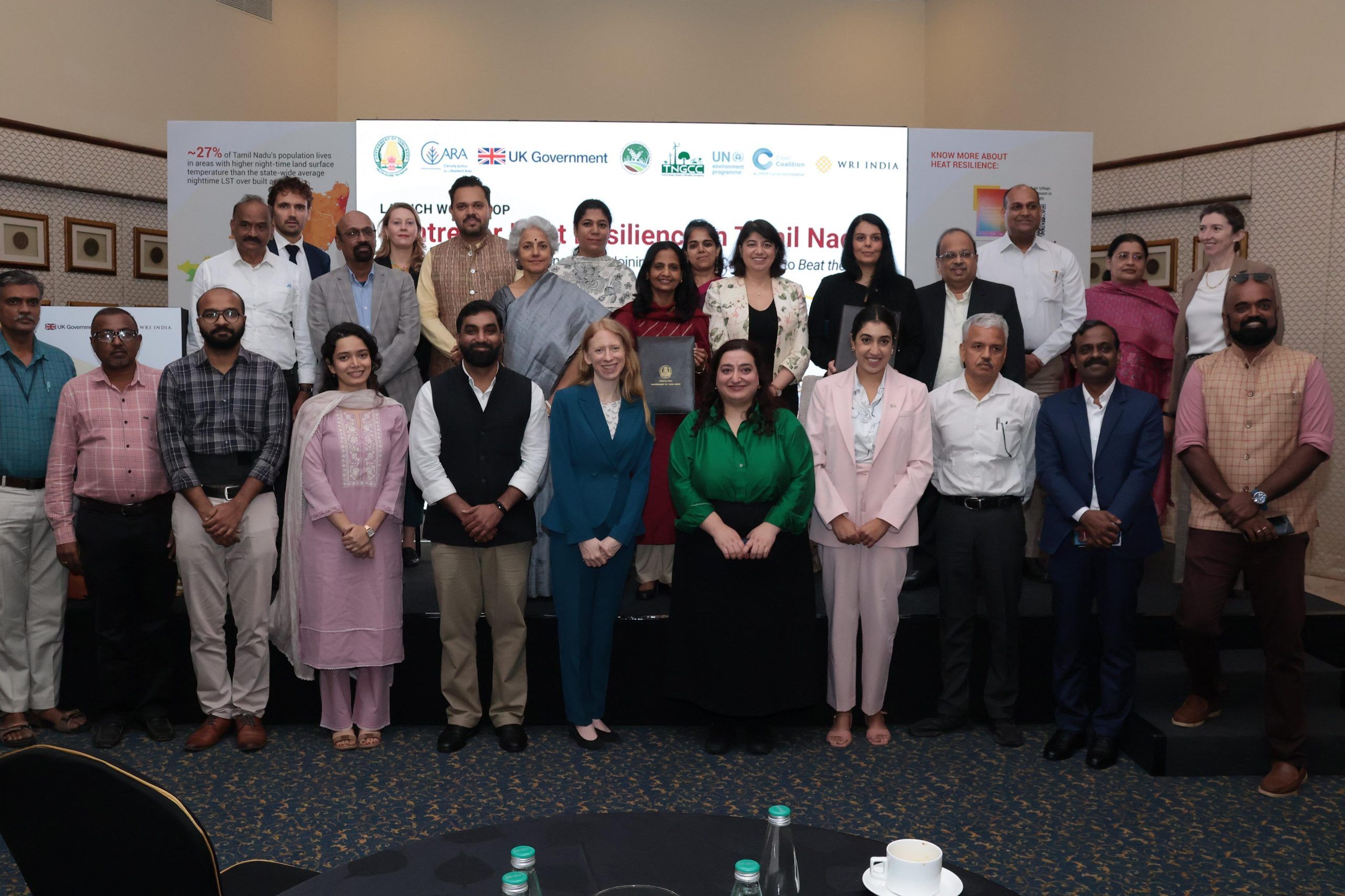The Chilling Prospects series tracks immediate vulnerability to a lack of access to cooling, identifying populations at risk whose lack of access threatens their immediate health and safety. It models risk on the basis of a spectrum of access to cooling that crosses human safety and comfort, food and nutrition security and agriculture, and health services for four populations: the rural poor, the urban poor, the lower-middle income and the middle income.
Global Access to Cooling in 2020
Across 54 high-impact countries, 1.02 billion people among the rural and urban poor remain at high risk in 2020. This includes 318 million people living in poor rural areas and 699 million living in poor urban areas. A further 2.2 billion lower-middle income people pose a different kind of risk: limited purchasing choices mean they are likely to favour cooling devices that are typically inefficient and could cause a dramatic rise in energy demand and associated emissions. In Africa, the rural poor population continues to grow, to 204 million in 2020, whereas in Asia, the number of urban poor continues to grow, up to 484 million people in 2020. A case study on India also shows the sub-national dimensions of measuring and addressing sustainable cooling for all. Read more.
Cooling for All and COVID-19
The COVID-19 pandemic that has dominated headlines since early 2020 has reshaped economic systems, changed human behaviour across the globe and demanded that the world rethink its response to climate change. Less widely appreciated are the impacts the pandemic has had on the developing world, how COVID-19 amplified other risks, and the opportunity to recover better with sustainable energy for all. From finding social distance when temperatures rise to ensure an affordable nutritious diet despite the economic downturn, access to cooling supports human needs highlighted by the pandemic. But perhaps most significant is the rapid expansion of the medical cold chain that may be necessary to deliver a vaccine. Most temperature-sensitive vaccines, such as influenza vaccines, require cold storage between 2°C and 8°C, but close to half of the vaccine candidates currently in phase 1 or later trials will require storage in a -80°C cold chain, which would require building a new cold chain for low-income countries. Read more.
The Productivity Penalty of Failing to Deliver Sustainable Cooling
As global temperatures rise, it has become clear that a dramatic expansion of air conditioning and the associated energy demand could have serious environmental consequences, and a lack of access to cooling, particularly for those working outdoors, poses a significant challenge for economic development. In 2019 the International Labour Organization (ILO) estimated that by 2030 the global economy would suffer lost productivity worth USD 2.4 trillion annually due to heat stress, the equivalent of 80 million full-time jobs.
In the aggregate, these are alarming figures. But they also belie the disproportionate impact on developing economies experiencing increasing heat stress, and the long-term impact heat stress will have on economic growth. It will be these countries, and the sectors that support their growth, that face the most significant productivity penalty due to a lack of access to sustainable cooling.
The analysis suggests that across 54 high-impact countries, the estimated annual economic loss due to heat stress is currently USD 630 billion, including USD 301 billion in the agricultural sector. Read more.
Sustainable Cooling Solutions
Cooling for all does not mean an air conditioner or a refrigerator in every home; it means providing more sustainable and affordable solutions to address the needs of the vulnerable. Beyond achieving the basic needs for cooling, these same sustainable cooling solutions also deliver significant benefits across the economy to countries, companies and the population at large. The consideration of cooling solutions must be grounded in an understanding of cooling needs that span multiple sectors, as identified in the Cooling for All Needs Assessment.
This chapter explores sustainable cooling solutions, from the perspective of three cooling needs, five solution approaches, and four solution pillars that can be used to optimize cooling solutions for sustainability and for access to cooling. The goal is to build a conversation with partners that can support the achievement of cooling for all, and serves as a starting point from which to develop the Cooling for All Solutions Assessment toolkit, which will support users to understand the right solutions based on their cooling needs. Read more.
Launch of the Chilling Prospects 2020 report and This Is Cool campaign
In 2018, the Cooling for All Secretariat launched the groundbreaking Chilling Prospects series to track and quantify the magnitude of the global access to cooling challenge and call for new and sustained action to address the issue. In partnership with the Kigali Cooling Efficiency Program (K-CEP), the series updates global access to cooling gaps each year and profiles new challenges and opportunities to deliver sustainable Cooling for All.
This year’s update will provide new data trends for access to cooling gaps and profile the productivity penalty of a lack of access to cooling. It will also detail the impacts of COVID-19 on delivering access to cooling and strategies to Recover Better with Cooling for All.
With these significant challenges present, 2020 must be the year of solutions. To support this, the Cooling for All Secretariat will launch the #ThisIsCool communication campaign to enable partners to share sustainable cooling solutions with the world and to support sustained global momentum. Building on the Cooling for All Needs Assessment launched in 2019, this installment of Chilling Prospects discusses how to categorize sustainable cooling solutions and sets a path to optimizing those solutions in the Cooling for All Solutions Assessment toolkit that will launch late 2020.
This report will also be presented at a side event to the Meeting of the Open-Ended Working Group of the Montreal Protocol on 16 July, 11 am CEST.
This event requires registration:
https://seforall.zoom.us/webinar/register/WN_SL7r0OOmTqCthAfJEvYYWQ
Once you submit your registration, you will receive a confirmation email with instructions on how to join the virtual launch.
Sources: https://www.seforall.org/chilling-prospects-2020 & https://www.seforall.org/events/chilling-prospects-2020



